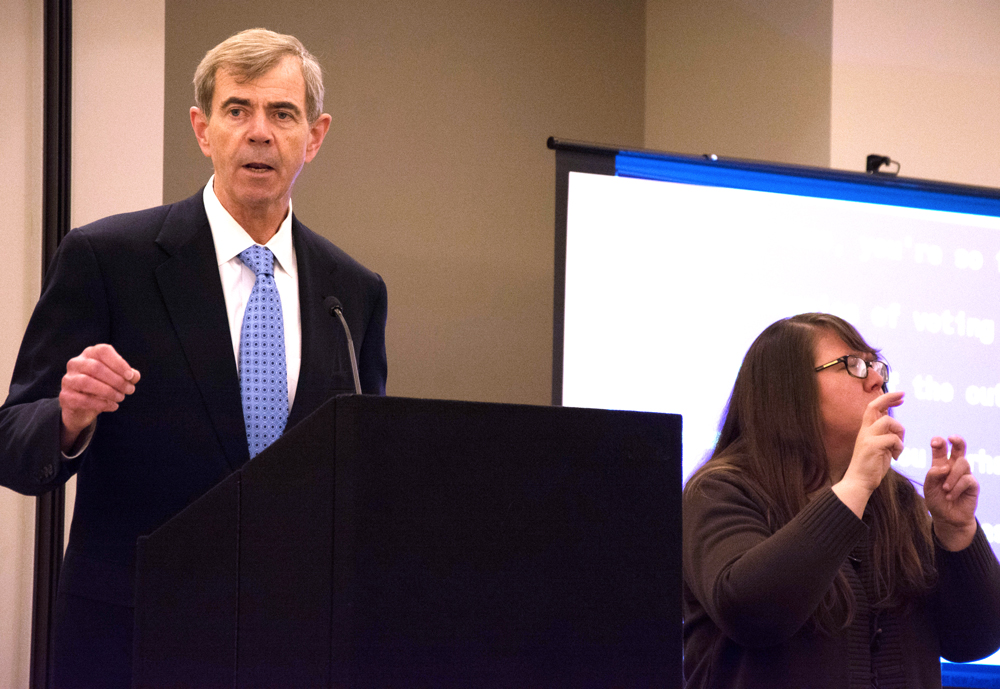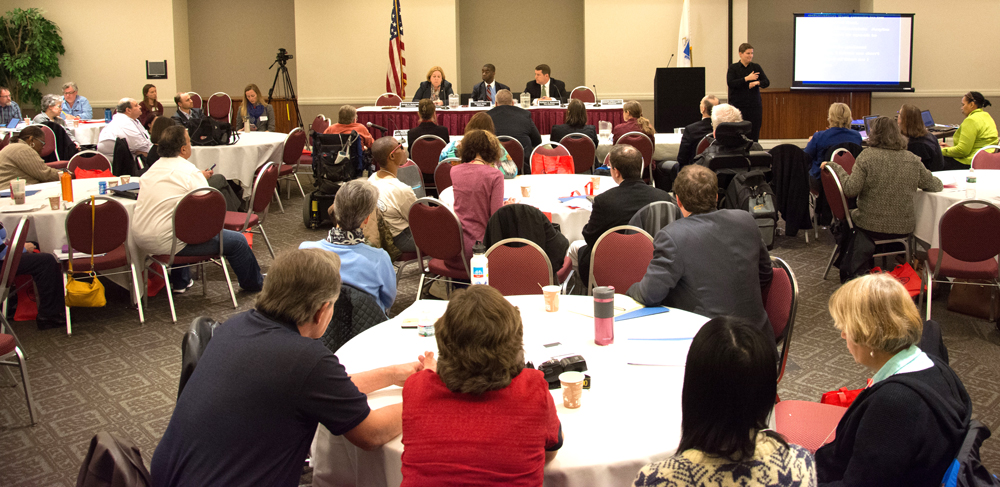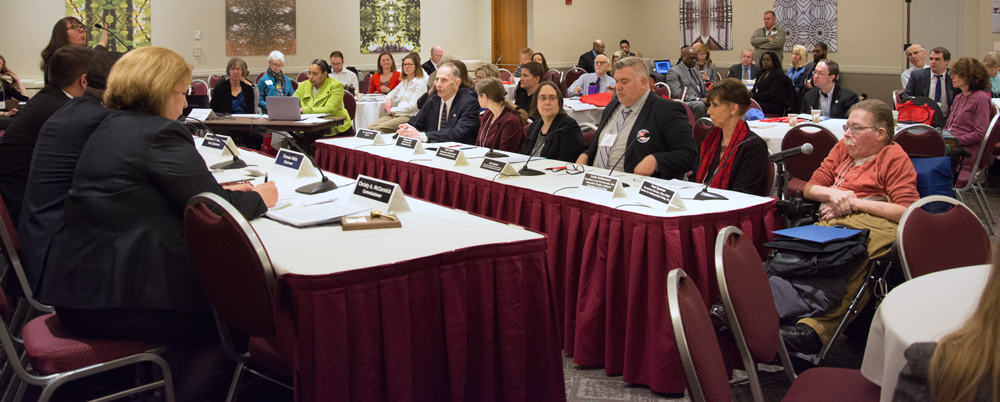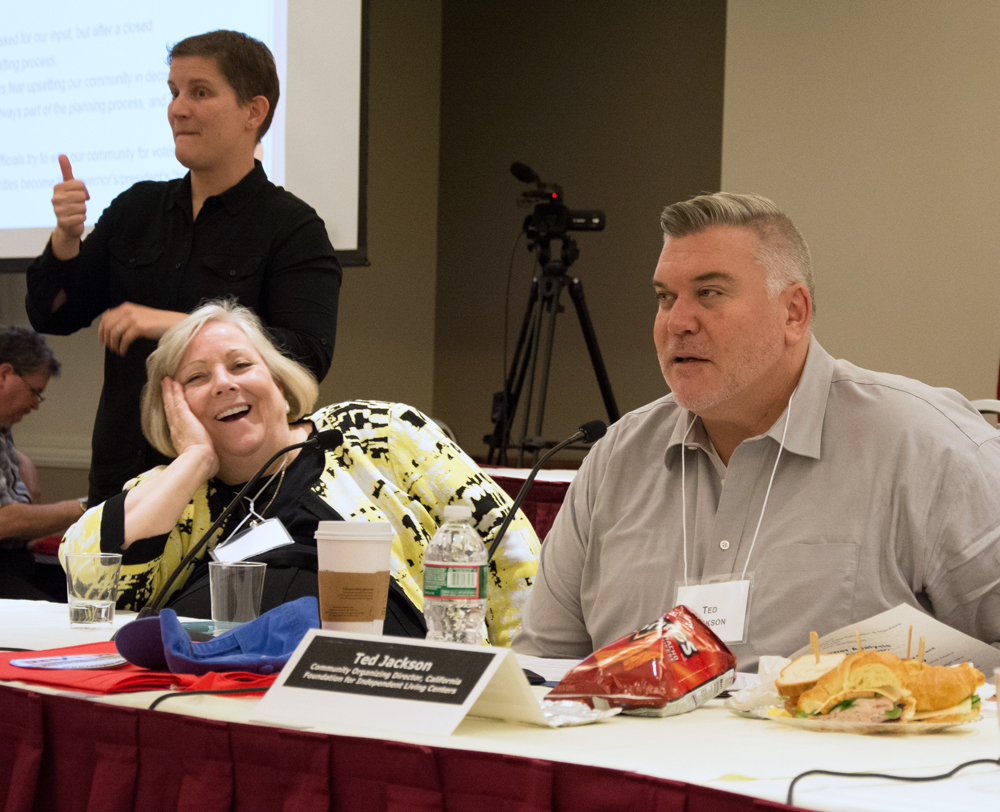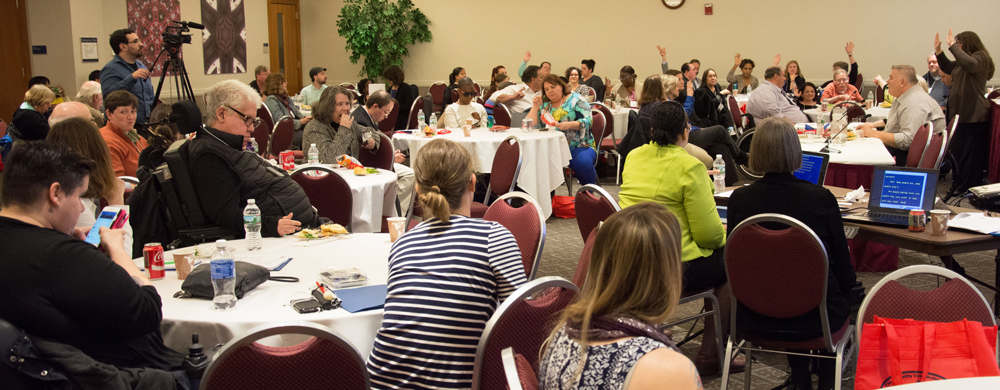From The Advocacy Monitor
November 21, 2017
Over the past two years, the media and the country have taken note of the disability community’s massive political interest and power. In 2016, the #CripTheVote and #RevUp campaigns created spaces for the disability community to rally as a voting bloc. More recently, ADAPT made headlines nationwide for their summer protests of repeal bills for the Affordable Care Act. Now that 2017 and its local and state elections are over, all eyes are looking toward 2018 midterms and how the disability community will impact those elections. However, the bigger question is: what still needs to be fixed before 2018 to ensure that people with disabilities have the same access to the vote as non-disabled voters?
Unfortunately, voting access hasn’t grown as the same rate as recognition of voters with disabilities. Recently, the U.S. Government Accountability Office released their survey of polling places during the 2016 election. This survey found that of the polling places they studied, 60 percent of polling places had barriers outside the polling place that could impede a disabled voter’s access to the vote. Inside, 65 percent of the polling places they surveyed had at least one impediment to casting a ballot for people with disabilities. Despite laws like the Americans with Disabilities Act (ADA) and the Help America Vote Act (HAVA) that mandate accessibility for polling places, compliance with these laws and voting access in general still has a long way to go to achieve true accessibility. Sadly, this statistic isn’t surprising, as a study performed at Rutgers University in 2012 found that during the presidential election, over 30 percent of voters with disabilities surveyed encountered at least one difficulty in casting their ballot, while only 8.4 percent of voters without disabilities encountered difficulty. There is still a massive disparity in voting access for people with disabilities.
It is critical for the disability community to take note of these issues and to push for change. One way we can do this is through weighing in on the Voluntary Voting System Guidelines 2.0, a set of guidelines for voting machine manufacturers that prescribe requirements for a machine’s usability, accessibility, and security. In September, the U.S. Election Assistance Commission (EAC) and the National Institute of Standards and Technology (NIST) met for two days to discuss these guidelines. Soon, these guidelines will be made available for public comment. We need the disability community to weigh in on these guidelines, critically analyze them, and let the EAC and NIST know that accessibility of voting machines is just as important as security.
Another way voters with disabilities can promote voting access is to share their story. The EAC wants to hear from voters with disabilities about their voting experience. If you have experienced barriers at the polls, or even if you have not, share your story with listen@eac.gov. These stories help the EAC to better understand barriers to voting for people with disabilities and how to remove those barriers. Success stories are also helpful because they can help to formulate best practices to ensure access for voters with disabilities.

